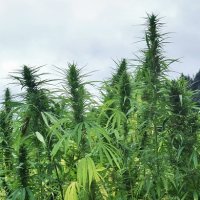The Omaha Tribal Council is holding a vote to help it determine whether its members want it to pursue legalization of marijuana.
There are three questions on the ballot – one relating to the recreational use of marijuana for adults aged 22 or older, another concerning the medicinal use of cannabis and another on the cultivation of industrial hemp.
The vote has been triggered by recent guidance on legalized marijuana on Indian Reservations by the USA’s Department of Justice; which says U.S. Attorneys shouldn’t give priority to prosecuting marijuana related offenses occurring in jurisdictions where it is legal and sales and possession falls within federal guidelines.
While Nebraska criminal laws make it an offense to manufacture, sell or possess marijuana, these laws do not apply to Natives on the Omaha Indian Reservation. Nebraska is still one of a number of states that does not permit any sort of use of marijuana; even industrial hemp which has very low levels of the psychoactive compound THC.
Industrial hemp is the oil, seed and fiber strain of cannabis sativa and has no value as a recreational drug.
The Tribal Council envisions that should it proceed, the Tribe will regulate and tax marijuana for the purpose of offsetting the cost of regulation and raising revenue for the Tribe; but cultivation, growth, manufacture, and sale or distribution of marijuana will be carried out by Tribe-licensed businesses.
Omaha Tribe of Nebraska is by no means the first tribe to head down this path. Other tribes throughout the USA with marijuana operations or have approved advisory referendums include the Flandreau Santee Sioux, Menominee, Pinoleville, Pit River XL Rancheria, Alturas, Colville, Suquamish, Squaxin Island and Tulalip tribes. Currently, there are no tribes in Nebraska that have legalized marijuana.
While the Omaha Tribe may be able to exploit the way laws are structured in the USA if it decides to proceed with legalizing cannabis; as the Menominee Indian Tribe recently discovered, that still doesn’t stop DEA officers from seizing and destroying crops.
The results of the Omaha Tribe vote are not binding; it is strictly an advisory exercise.
An FAQ on the exercise can be viewed here (PDF).


